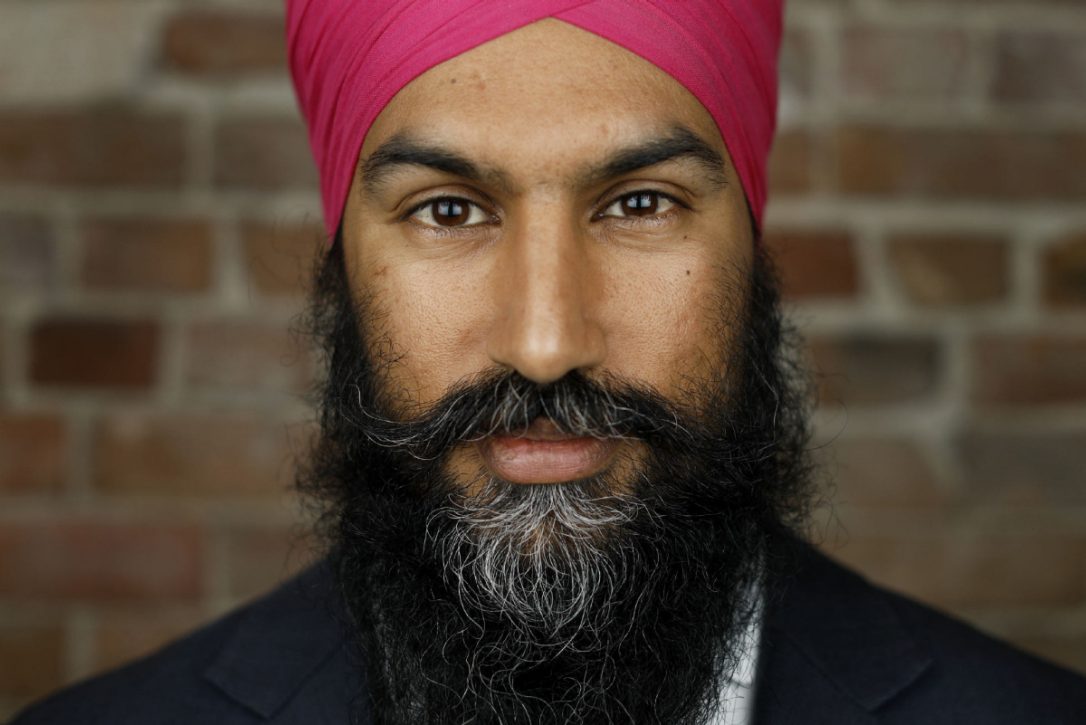Jagmeet Singh's great potential as a prime ministerial candidate was his capacity to build a broad coalition as an inspiring symbol of modern multiculturalism, not unlike Barack Obama. His political career is now faltering as it becomes clear that was never his actual goal.
Evidence is increasingly abundant that the defining cause of Singh's life is not social democracy or progressive politics, but the considerably narrower cause of Sikh nationalism and Sikh separatism. As Paul Wells noted, Singh once identified fighting those who "slander of the Sikh community" — which, in his mind, apparently entails anyone who condemns the terrorist sympathies and violent extremism of Sikh secessionists — as among his primary motives for being in politics. A HuffPost story from last year suggested his first run for office was partially animated by outrage at then-Premier Dalton McGuinty's summit with a visiting Indian politician particularly hated by Sikh activists.
Recently-released evidence of his attendance at a 2015 Sikh separatist rally in San Fransisco featured Singh declaring that his loyalty to the cause of an independent Sikh homeland — and desire to send a visible "message to India" — was the reason he wore his turban and beard in the distinct style associated with nationalists. One might quibble how much the Indian government, which is responsible for governing over a billion people, cares about the sartorial choices of a man who was, at the time, a backbencher in the Ontario legislature, but Singh certainly believed they were monitoring him close enough to attempt to sabotage his run for NDP leader, as he conspiratorially alleged to The Globe and Mail last summer. Singh, for his part, has returned the favor by introducing motions, both in Queen's Park and Ottawa, condemning New Dehli for committing "genocide" against its Sikh citizens. His blinkered bias towards viewing the self-proclaimed warriors of Sikhdom as always in the right famously manifest in Truther-like musings about the Air India bombing ("I don't know who's responsible"), with a recent belated acceptance of reality (conceding the Sikh separatist terrorist/martyr Talwinder Singh Parmar was responsible) being blasted by critical observers as obviously disingenuous damage control.
Where Singh's passion for this issue originates is hardly self-evident. He was born in Scarborough, and his immigrant parents come from a high-caste background, the Dhaliwal clan, and don't seem to have experienced much firsthand oppression in the old country. Having moved to Canada in the 1970s, they certainly escaped what Singh identifies as the genocide year of 1984, when Sikh-Hindu violence was at its peak. As has been repeatedly remarked in the press since Prime Minister Trudeau's recent disastrous trip to the country, Sikh separatism is not a particularly live issue in India these days, and is in fact an ideology actively resented as dangerous and unpatriotic by the Sikh premier of India's Sikh-majority province — to say nothing of India's former Sikh prime minister.
Ujjal Dosanjh, the man who was previously Canada's highest-ranking Sikh politician, has characterized Singh as a creature of "the grievance politics of post-1984" in the Sikh immigrant community, and others have suggested his rapid rise through Canadian politics reflects the power small but aggressive ethnic and religious subcultures can play in our pay-to-play system of candidate nominations.
In any case, the fact that all this info is increasingly public knowledge, with Singh's brand now tied less to Canadian diversity than the pet causes of a single tile of our multicultural mosaic, puts the NDP in a tough place.
On the one hand, I've heard it said that Singh's ultimate desire in politics was to get the supposed oppression of the Sikhs of India elevated to the status of a leftist cause célèbre, in much the same way the plight of the Palestinians is. In the aftermath of Singh's recent headline trouble, some New Democrat partisans have done their best to conform to this new reality, tweeting lines and pushing narratives, such as a much-shared essay by left-wing journalist Sandy Garossino, portraying Singh's evident sympathy for even the most radical faction of the Sikh separatist movement is something perfectly sane and defensible once you know all the facts. I wouldn't have thought putting a sympathetic spin on a movement of ugly ethno-religious chauvinism would have much traction with progressives, but if you had asked me after 9-11 I wouldn't have thought Islamist apologism would get so trendy either.
On the other hand, converting the NDP faithful to a cause is one thing, getting Canada's broader 99% non-Sikh majority to care is another.
The understood purpose of Canadian politics, after all, is not to help small diaspora communities efficiently organize and file their outstanding grievances with the motherland, it is to secure the shared interests of the greatest number. The promise of progressive politics in particular is to right the most pressing manifestations of economic and social inequalities in Canadian society, through fair taxation, generous social programs, and educated compassion. Every minute the NDP leader spends on his Khalistan hobby horse, whether it be nuancing his views on terrorist attacks or introducing genocide motions, is a minute his party is losing its association with a broader progressive agenda, and thereby allowing Justin Trudeau to consolidate power as voters' only legitimate left-of-centre alternative to Andrew Scheer's increasingly popular Tories.
It would be one of the weirdest phenomena in the history of the western world if the New Democratic Party of Canada, founded as a socialist party for rural farmers, descended into a grievance party for urban Sikhs. Yet so long as Singh remains leader, that seems to be the track they're on.
Written by J.J. McCullough
The views, opinions and positions expressed by columnists and contributors are the author’s alone. They do not inherently or expressly reflect the views, opinions and/or positions of our publication.











